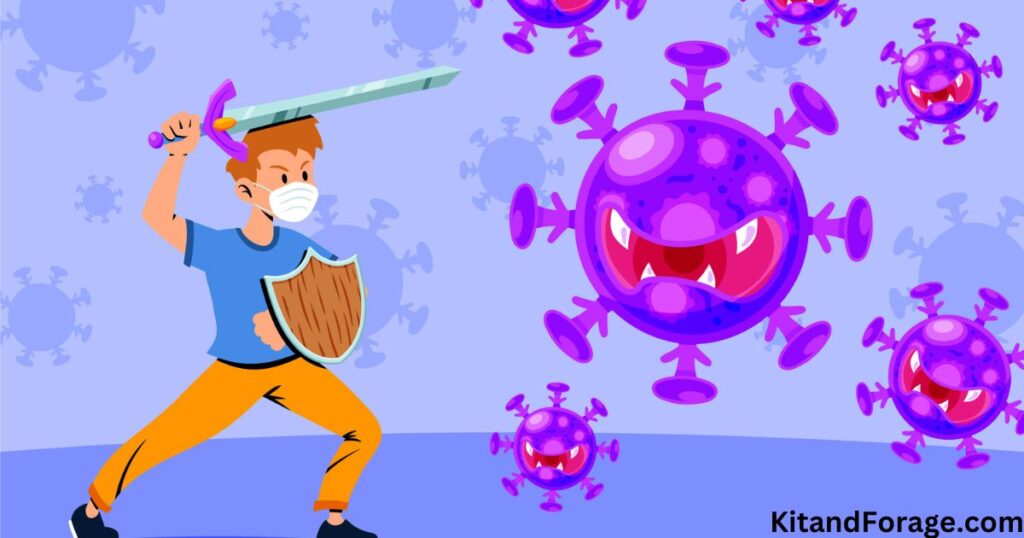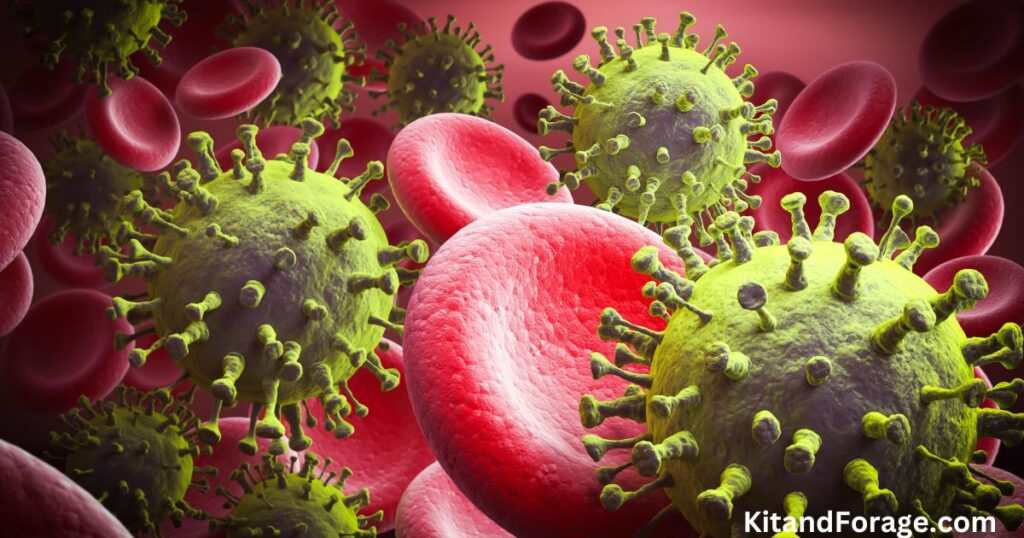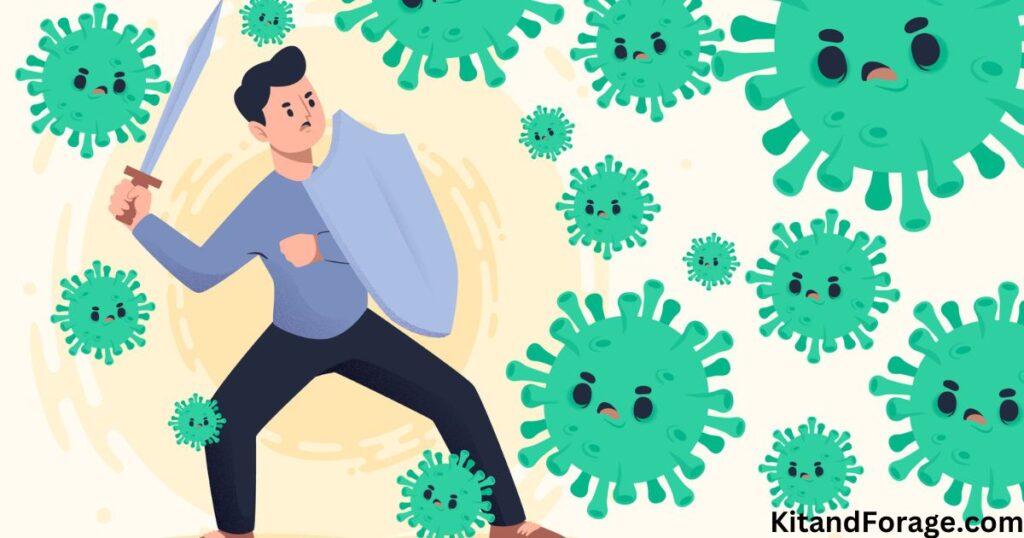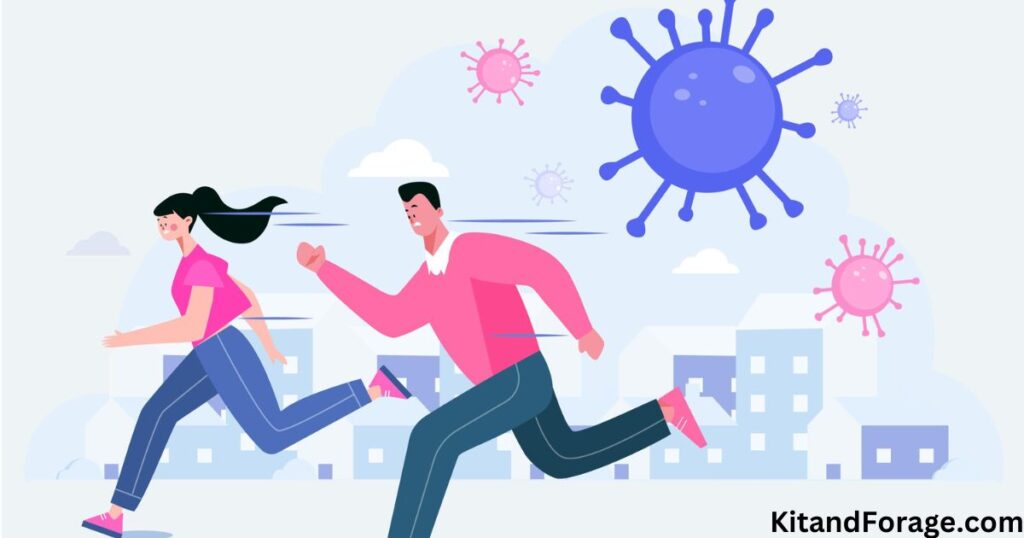For the health of our communities as a whole, herd protection is very important. Achieving herd immunity can stop the spread of infectious illnesses and keep weak groups safe. This part will talk about why herd immunity is important for public health, what its effects are, and how it works.
One of the key benefits of herd immunity is that it stops the spread of contagious diseases. There is less chance for a disease to spread when enough people in a group are vaccinated against it. The disease can’t find enough people to attack, so the wave ends.
Herd immunity is also very important for protecting people who are weak, like babies, the old, and people with weak immune systems. Someone who is weak and can’t get a vaccine is protected from getting the disease when a lot of people in a group are vaccinated against it.

Herd immunity can also make it less likely that outbreaks will happen again in the future. As a group gains herd protection, the disease is less likely to spread to other people. This is good for everyone in the community, and it can also save money on health care and stop needless deaths.
Finally, it’s impossible to say enough about how important group protection is. Getting herd immunity can stop the spread of contagious diseases, protect weak people, and be good for public health. It is very important to know what herd immunity means and do what you need to do to get it.
15 Benefits of Why Herd Immunity Is Important
The original concept was that immunity would be achieved by vaccinating 90% or more of certain populations. Sole vaccination will just save you but the herd vaccination will save the people who can’t be vaccinated as well.
15 benefits of herd immunity are stated below which will help you understand its necessity and importance.
1. How to Understand Herd Immunity
Let’s first talk about what “herd immunity” means before we talk about how important it is.
When a lot of people in a group become resistant to a certain disease, this is called herd immunity or community immunity. The disease can’t spread because of this, even to people who aren’t protected.
For example, if 80% of a community is resistant to a disease, then the other 20% are also safe because the illness can’t spread as easily because fewer people can get it and pass it on.
The concept of herd immunity is especially important in the case of diseases that are highly contagious and have no cure or preventive treatment, such as measles, mumps, rubella, and chickenpox. In such cases, the only way to control the spread of the disease is by achieving herd immunity.
By getting herd immunity, we can protect the weakest people in our communities, like babies, the old, and people whose immune systems aren’t working well, and who can’t get vaccines or get protected through natural illness.
“Herd immunity is not just about protecting ourselves; it is about protecting those who cannot protect themselves.”
How to achieve Herd Immunity
A large part of the community must be resistant to a certain disease for herd immunity to happen. This number is called the herd immunity cutoff. The barrier is different for each disease and depends on how easily they can spread. As an example, measles spreads very easily, and the level of protection needed for herd immunity is about 95%. For polio, the level of protection needed is about 80–85%.
Herd protection can be reached in several ways, but the vaccine is one of the best. The immune system makes defensive antibodies in response to vaccines, which can stop the disease from spreading. Getting vaccinated is important for group protection because it protects everyone from getting the disease.
“Vaccination is one of the most progressive interventions in public health and has made significant contributions to reducing the burden of infectious diseases worldwide.”
Other ways to get group immunity are through quarantine rules and natural protection from past attacks. However, depending on natural protection alone can pose serious health risks, and it can be hard to enforce isolation rules correctly.

To hit the level needed to protect the people effectively, it is important to use planned herd immunity tactics. Among these tactics are raising knowledge about vaccines through public awareness campaigns, making sure everyone can get vaccines, and giving priority to vaccination programs for high-risk groups like children, the elderly, and healthcare workers.
To sum up, getting herd immunity is very important for stopping the spread of deadly diseases and keeping sensitive groups safe. To get herd protection and protect everyone’s health, some of the best ways to do this are through tailored vaccine programs, public information efforts, and vaccinations.
Herd Immunity and Vaccinations
A big part of getting group protection is getting vaccinated. They are the best way to keep people safe from contagious diseases and stop attacks before they happen.
When a lot of people are protected against a disease, it’s much less likely that it will spread. Most people are immune to the disease, so it is hard for it to spread from one person to another.
Additionally, vaccines help protect weak groups like babies, young children, and the old, who might not be able to get some shots because of health issues. This extra layer of safety comes from herd immunity, which lowers the general risk of getting the disease in the community.
Vaccines are one of the most important things we can do to stop infectious diseases. By stopping the spread of sickness, they protect both people and the group as a whole.
Keep in mind that a lot of people must get vaccinated for herd protection to work. If a lot of people don’t get the vaccine, the disease can spread quickly, even if only a small part of the population has it. Because of this, it is very important for everyone to get the vaccines that are suggested and for doctors and nurses to encourage vaccinations and teach the public about how important herd immunity is.

To sum up, getting vaccinated is an important part of building up group protection. They help protect people and groups that are more likely to be hurt, and they also lower the number of dangerous diseases in the community as a whole. Not only do people protect themselves by getting vaccinated, they also help protect public health by working together to build herd immunity.
Herd Immunity and Public Health
Public health is an important part of a community’s health. Herd immunity is an important part of keeping people healthy because it stops the spread of contagious diseases. When a lot of people are immune to a disease, it’s harder for the bacteria to efficiently spread because fewer people are vulnerable.
When herd immunity isn’t present, dangerous diseases can easily spread through communities, making people very sick, hospitalized, or even killing some. When most people get vaccinated, the disease can’t spread as easily, saving those who can’t get the vaccine because of illnesses or medical conditions.
Additionally, gaining herd immunity helps stop the spread of diseases that are hard to treat, like COVID-19. Because of the COVID-19 outbreak, we now know how important group immunity is for stopping the spread of contagious diseases. The number of cases, illnesses, and deaths has gone down in countries where a lot of people have been vaccinated.
This is a problem for the whole society. When enough people get vaccinations, we can protect the weak and keep our communities healthy in the long run.

It is important to remember that herd protection can only happen when a lot of people get vaccinated. This is why vaccines are so important for public health. Not only do we protect ourselves by getting vaccinations, but we also help keep our community healthy as a whole.
• Vaccines are very important for stopping the spread of diseases.
• Vaccines save lives and keep people from having to go to the hospital.
The general health of people and groups is improved by vaccines.
To sum up, gaining herd immunity is an important part of public health. We can protect our neighborhoods and make sure everyone is healthy and safe by getting vaccinations and telling others how important it is to do the same.
In conclusion
It is clear that herd immunity is very important for saving our communities and the most vulnerable people among us after looking into what it means, how vaccines work, and how they affect public health. You can’t say enough good things about herd immunity because it keeps everyone healthy and stops the spread of dangerous diseases.
It’s important to understand how important group immunity is, and we need to work together to get it. We can hit the herd immunity barrier and keep our communities safe from diseases by getting more people vaccinated and using tactics that work.
To sum up, group immunity is important, and it is up to all of us to make sure we achieve it. Let’s work together to keep ourselves, our families, and our neighborhoods safe.



